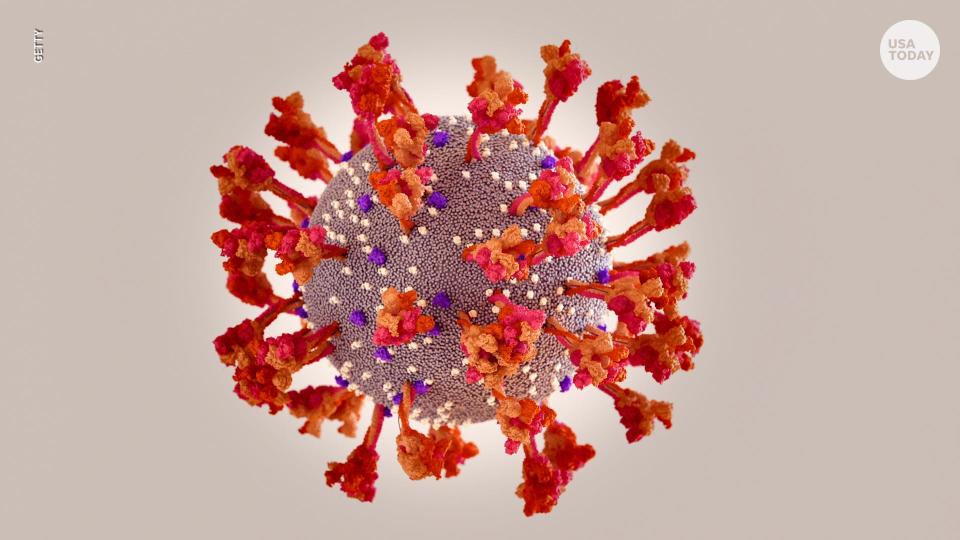Having COVID isn't a badge of shame. Stop the stigma to boost testing and open conversations.
The email I received from the White House Correspondents’ Association last week began like so many other letters emailed to business employees and school communities:
“Dear Colleagues, We’re writing to let you know that a member of Monday’s in-town pool received a positive test result for COVID-19 this morning, following mild symptoms that began on Wednesday. Because this individual developed symptoms within 48 hours of being in the briefing room Monday, we are sending this advisory. … We expect the White House Medical Unit to reach out to anyone who is deemed by that office to be a close contact.”
Who? No name.
And for the next several hours, of course, everyone who would have been anywhere near the White House press operation was speculating about who the COVID-19 positive person was.
COVID-19 is not a moral test
Letters like this are part of the reason we are failing in our quest to vanquish COVID-19. We have made it a badge of shame, suspicion and superstition, followed by a Big Brother-sounding official visitation. Unfortunately, human beings have a long history of stigmatizing disease, which has persisted even as science and medicine have progressed. Not long ago, cancer patients were routinely shunned; “healthy” people thought they could catch it. The same with AIDS patients.
COVID-19: Amid COVID and delta variant, omicron has the potential to change the equation
We are doing something very similar now. I have a news flash: COVID-19 is not a moral test; it’s spread by a miserable airborne virus.

Getting COVID-19 is not cheating on a spouse; it is not stealing from an employer. It is nothing to be ashamed of. It is simply being exposed to an omnipresent, highly contagious virus and becoming infected by it. If you interview a lot of medical experts, as I do, the general expectation is that most of us will eventually contract COVID-19.
Yes, it happens more frequently to the unvaccinated – and they remain the most likely to become seriously ill, be hospitalized and even die – but as we can see from the data in highly vaccinated states like Vermont, the vaccinated can still get sick.
Yet when notices are sent out, with multiple identifying details, all except the person’s name, the implicit message is one of secrecy and shame. Revealing a positive COVID-19 test sounds very much like confessing to having contracted a sexually transmitted disease. And by doing this, we make people more reluctant to both be tested and come forward. Moreover, there are consequences for our COVID-half-reveal protocols: They aren’t helping us to contain the virus.
Fighting the stigma
Not identifying the person who has tested positive could enhance the risk of further spread. Yes, the infected person may be interviewed for contact tracing, but how many of us can accurately remember all the people we came into contact with over two, three or even seven days? But a co-worker might well remember chatting in a hallway with you or me. Rather than becoming an asymptomatic spreader, that co-worker could get tested and take extra precautions. Discussing COVID-19, without judgment, could even help Americans who have been reluctant to get vaccinated. It would lower the temperature around the disease.
To those who say positive tests must remain confidential because of Health Insurance Portability and Accountability's privacy rules. Those HIPAA rules, while very important, apply only to health care providers and related health care businesses and institutions.
We need cultural change: 'We've reached limits of sensible policy' to fight COVID-19.
Last I checked, no one at the White House Correspondents’ Association was refilling prescriptions or taking blood pressure readings. Nor do employees get their medical care from their company’s human resource departments.
Hopefully, in a few years, COVID-19 will largely be a thing of the past, and we will be back to talking about the flu. But as the new and highly contagious omicron variant reminds us, it is also possible that COVID-19 will be with us for a long time. It took decades for us to stop stigmatizing other diseases and start to understand them. I hope the learning curve will not be so steep with COVID.
Greta Van Susteren is the host of "Full Court Press." She is also a former television news anchor for CNN, Fox News and MSNBC. Follow her on Twitter: @greta
You can read diverse opinions from our Board of Contributors and other writers on the Opinion front page, on Twitter @usatodayopinion and in our daily Opinion newsletter. To respond to a column, submit a comment to letters@usatoday.com.
This article originally appeared on USA TODAY: Greta Van Susteren: A COVID diagnosis is nothing to be ashamed of.

 Yahoo Movies
Yahoo Movies 
